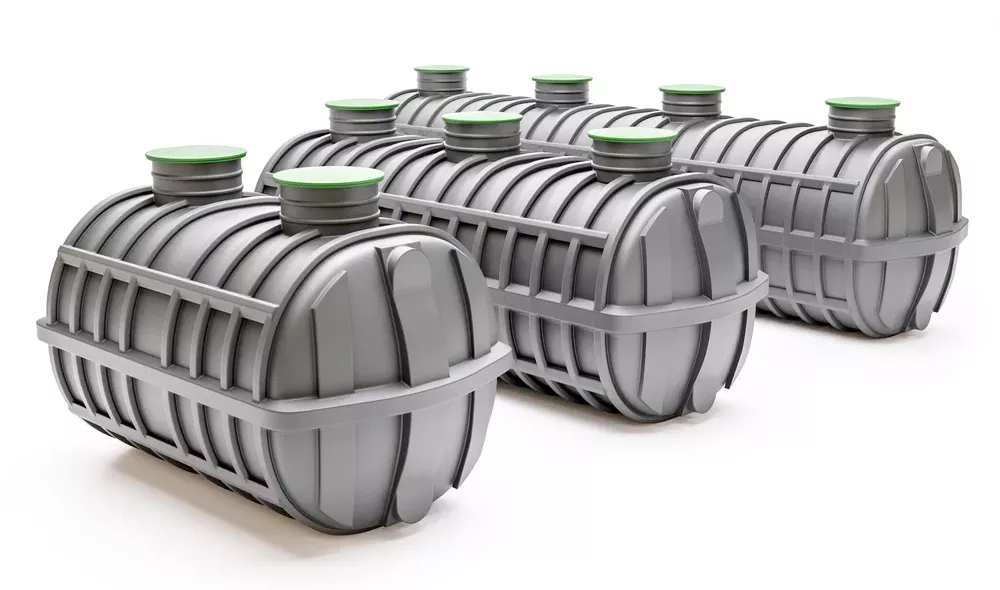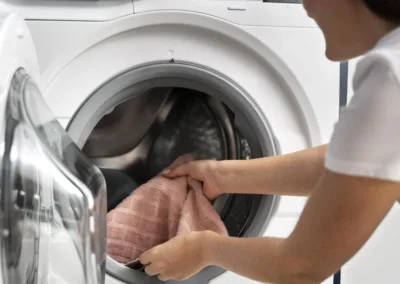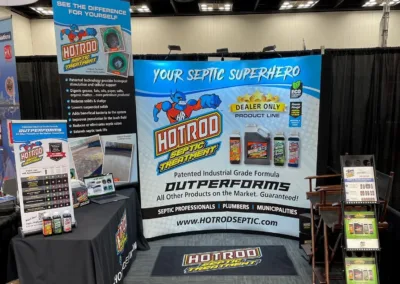
Water Usage Matters
One of the primary factors in determining the right septic tank size for your home is your water usage. In the United States, the minimum septic tank size typically starts at 1,000 gallons. However, this size can vary based on your daily water consumption. If you’re a conscious water user and consume less than 500 gallons per day, a 900-gallon tank might be good enough for your home. On the other hand, if your daily water usage ends up being between 900 and 1,250 gallons, you’ll need a larger tank, ranging from 1,500 to 1,900 gallons.
Consider Your Property Size
Your property size also plays a significant role in determining the appropriate septic tank size. Larger homes require larger tanks to handle the increased amount of wastewater going to them. For instance, a 1,500-square-foot home might find a 750-gallon tank sufficient, while a 2,500-square-foot home could need a tank that holds more than 1,250 gallons.
In the United States, septic systems typically range between 1,000 and 1,500 gallons on average. This range caters to the varying demands and needs of homeowners. However, it’s important to note that the exact size needed will depend on several factors that are different for everyone based on state or county regulations, household size, region, and more.
Regulations and Guidelines
Local regulations and guidelines can significantly influence the size of your septic tank. State, county, and city authorities often dictate approved sizes, tank materials, and placement. Compliance with these regulations is important to ensure that your septic system operates correctly and legally. These regulations not only protect you, but also groundwater supply and other environmental aspects in your area that could be affected by a flawed septic system installation, or size choice.
Problems with Oversized Tanks
While a larger septic tank may seem like a good idea, there are potential downsides. If a septic tank is too large, it may not function as efficiently as it should. In oversized tanks, there might not be enough liquid to support the necessary bacteria to break down solids effectively.
Benefits of a Larger Septic Tank
Despite the potential drawbacks, installing a larger septic tank often proves to be the safer and more preferred choice. Here are a couple reasons why:
-
- A larger septic tank can accommodate fluctuations in water usage, such as during parties or when hosting long-term guests.
- It can also prevent the need for tank replacement if your family size grows or if you plan to make home additions that increase water usage
Problems with Septic Tanks that aren’t Big Enough
Going with a septic tank that’s too small will often lead to more problems than having one that’s too big. These include frequent pumping, overloading the tank, shortened tank lifespan, odor issues, system backups, environmental concerns, legal compliance issues, inconvenience, and increased maintenance costs. With too much waste and not enough space for it, you can’t expect your system to function properly. Correctly sizing your septic tank based on factors like water usage and property size is crucial to avoid these issues and ensure a functional and trouble-free septic system.
In the world of septic tanks, size does matter, but bigger isn’t always better. The right septic tank size for your home depends on various factors, including water usage, property size, and local regulations. While there are disadvantages to oversized tanks, the benefits often outweigh the drawbacks – but having a tank that’s the perfect size for you is always what you should aim for. A carefully chosen septic tank size ensures that your system operates efficiently, meets regulatory requirements, and adapts to your household’s changing needs.
No matter the size of your septic tank, it’s critical that the ecosystem inside is flourishing if you want to ensure proper waste management and functionality of the system. With HOTROD Septic solution’s easy twice a year application, you’ll reintroduce vital biologicals and enzymes into your system that actively digest solid wastes so you won’t end up with unexpected clogs, backups, or system failures. Whether you have a big septic tank or a small septic tank, HOTROD Septic solutions will help keep your system functioning the way it’s meant to, year after year.


